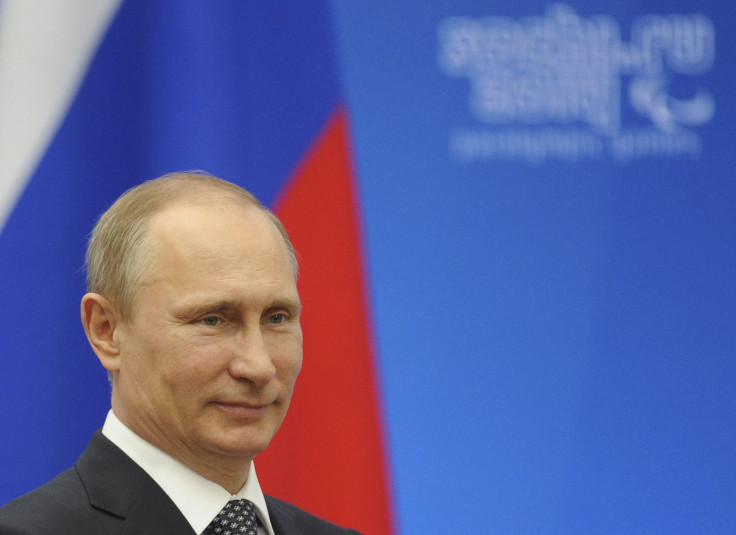Crimea Crisis: Putin Signs Decree Recognizing Crimea As Independent State

Russian President Vladimir Putin signed a decree Monday that recognizes the self-proclaimed Republic of Crimea as a “sovereign and independent state,” after a referendum Sunday in the autonomous region showed overwhelming support for joining the Russian Federation.
"Considering the will of the peoples of Crimea expressed at the all-Crimea referendum on March 16, 2014, I hereby decree that the Republic of Crimea, where the city of Sevastopol has a special status, be recognized as a sovereign and independent state,” the decree said, according to the state-owned ITAR-TASS news agency.
Sevastopol is the base of Russia's Black Sea Fleet under a long-term lease from Ukraine.
The decree is no surprise, as Russia is seen by the international community as orchestrating the vote in the territory it sent troops into and has occupied since Feb. 28. An exit poll of the referendum showed that 93 percent of voters want Crimea to secede from Ukraine and join the Russian Federation.
Many pro-Ukrainian Crimeans, like the ethnic Tatars who make up around 12 percent of the population, saw the referendum as illegitimate and rigged and refused to vote.
On Sunday, a cease-fire lasting until Friday was agreed upon between Russian and Ukrainian governments. While no shots have been fired between Ukrainian and Russian forces in Crimea, the cease-fire allows previously surrounded and occupied Ukrainian military bases to resupply.
Now the status of Ukrainian troops in Crimea is in question. If Crimea has declared itself an independent region, then are the Ukrainian troops there illegally? Crimea’s deputy prime minister, Rustam Temirgaliyev, said Sunday that Ukrainian troops in Crimea can join the Russians or be given safe passage out of the region, but the question looms: Will they agree to leave?
In response to the referendum, the U.S. froze assets and banned the travel of 11 Russian and Ukrainian figures it sees as fundamental actors in the Crimean crisis. They include former Ukrainian President Viktor Yanukovych, the Crimean President Sergei Aksyonov and Putin's top aides, but not Putin himself. The European Union imposed sanctions on 21 Russians and Ukrainians.
Many of those sanctioned brushed the measures off their shoulder, saying the sanctions wouldn’t hurt them much. One target, the chairman of the constitutional committee of the upper house of Russian parliament, said, “I was quite happy with the company of the people in which I found myself,” and that the sanctions were “no tragedy for me.”
Putin’s press service said he will address the Russian parliament at 3 p.m. Tuesday Moscow time (7 a.m. EDT) “in connection with Crimea’s and Sevastopol’s appeals for accession to Russia.”
© Copyright IBTimes 2024. All rights reserved.






















